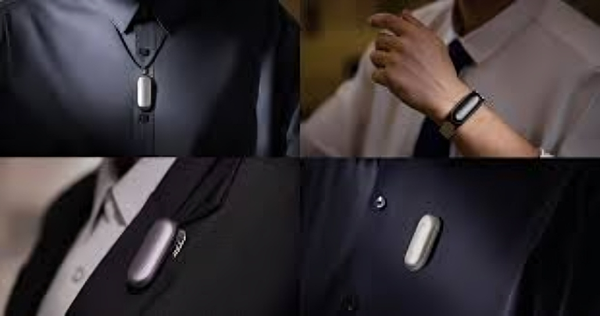Will OpenAI Redefine Browsing by Acquiring Chrome?

Imagine firing up your browser, but instead of just a search bar, you’re greeted by an AI-powered assistant that anticipates your needs, curates content, and maybe even chats with you about your day. This could be the future if OpenAI, the masterminds behind ChatGPT, get their hands on Google Chrome. Recent buzz from courtrooms to tech blogs has everyone talking: could OpenAI really buy the world’s most popular browser? Let’s dive into this juicy tech saga, unpack the antitrust drama, and explore what it means for you and me.
The Antitrust Storm Shaking Google
The story starts with a legal earthquake. The U.S. Department of Justice (DOJ) has been gunning for Google, accusing the tech giant of being a search monopoly. Last year, Judge Amit Mehta dropped a bombshell ruling: “Google is a monopolist, and it has acted as one to maintain its monopoly.” The DOJ’s big idea? Force Google to sell Chrome, the browser that commands over 66% of the global market, to level the playing field. This isn’t just about search engines—it’s about control over the internet’s gateway. Chrome isn’t just a browser; it’s a pipeline to Google’s search empire, ad revenue, and data goldmine.
Enter the suitors. As the DOJ pushes for a Chrome sale, tech heavyweights are circling like sharks smelling blood. Among them, OpenAI, Perplexity, and even Yahoo (yes, that Yahoo) have raised their hands, each with their own vision for Chrome’s future. But OpenAI’s interest is stealing the spotlight. Why? Because they’re not just another tech company—they’re the ones redefining how we interact with AI.
Why OpenAI Wants Chrome
So, why does OpenAI, the company behind ChatGPT, want to waltz into the browser game? It’s not just about slapping their logo on Chrome. Nick Turley, OpenAI’s head of product, spilled the tea during the antitrust trial: owning Chrome would let them “introduce users to what an AI-first experience looks like.” Picture a browser where ChatGPT isn’t just a plugin but the heart of your browsing, answering questions, curating feeds, and maybe even writing your emails.
OpenAI’s already dipping its toes into search with ChatGPT Search, a feature that takes on Google’s bread-and-butter. But search is just one piece of the puzzle. Chrome would give OpenAI a massive platform—think four billion users—to push their AI tools, collect data, and compete head-on with Google’s Gemini. It’s a power move to leap from being an app you open to the intelligence layer of your entire digital life. Plus, OpenAI’s been hiring ex-Chrome developers, hinting they’ve been dreaming of a browser takeover for a while.
The Competition and Concerns
OpenAI isn’t alone in this race. Perplexity, an AI-powered search startup, also wants Chrome to supercharge its growth. Their CEO, Aravind Srinivas, sees a browser as a way to deliver hyper-personalized ads and services. Meanwhile, Yahoo, backed by Apollo Global Management, is eyeing Chrome as a shortcut to revive its faded glory. They’re even building their own browser but admit Chrome’s scale is unmatched.
But here’s the rub: not everyone’s thrilled. Perplexity’s Dmitry Shevelenko warned that if OpenAI snags Chrome, they might mess with Chromium, the open-source engine powering Chrome, Edge, and others. Could OpenAI prioritize profits over the open web? And what about privacy? Chrome under Google already tracks your every click for ads. If OpenAI takes over, their hunger for AI training data could make things even creepier. Critics worry this swap might just trade one monopoly for another.
What’s at Stake for You
Let’s get real: Chrome’s fate affects you. If OpenAI buys it, your browser could become a slick, AI-driven hub, making life easier with instant answers and tailored content. But there’s a catch. More AI could mean more data collection, and OpenAI’s not exactly known for transparency. Plus, a Chrome sale would shake up the browser wars, potentially giving rivals like Firefox or Edge a chance to shine—or leaving them scrambling if Chromium takes a hit.
The bigger picture? This is about who controls the internet’s front door. Chrome isn’t just a tool; it’s a gatekeeper. Whoever owns it decides what you see, how you search, and what data they scoop up. A shift to OpenAI could accelerate the AI revolution, but it might also lock us into a future where a few tech giants still call the shots.
The Road Ahead
Don’t hold your breath just yet—Chrome isn’t on the market. Google’s fighting tooth and nail, with appeals that could drag on for years. The DOJ’s push to break up Google’s empire is bold, but judges like Mehta have been skeptical about a full Chrome sale. By August 2025, we’ll have a clearer picture of Google’s fate, but for now, it’s a waiting game.
If OpenAI pulls this off, it’d be a seismic shift, turning Chrome into a beacon of AI innovation or, worst case, a shiny new monopoly. Either way, the tech world’s watching, and so should you.



